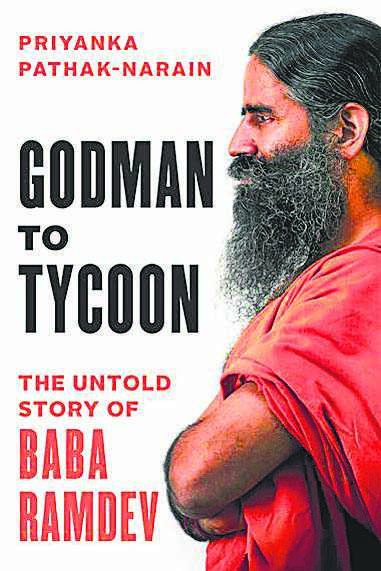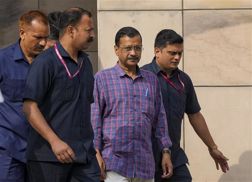
Karthik Venkatesh
TWO books and a Supreme Court judgment have recently been in the news, and not for pleasant reasons. Hansda Sowvendra Shekar's The Adivasi Will Not Dance was banned by the Jharkhand government. The writer, a doctor with the Health Department, has also been placed under suspension. His crime: writing a book that a few people thought showed the Santhals in bad light. The axe fell on the book quickly.
Also placed on the proscribed list was a book on Baba Ramdev, Godman to Tycoon: The Untold Story of Baba Ramdev by Priyanka Pathak-Narain. A few details mentioned in the book, relating to the mysterious deaths of associates and shady business deals and tactics, were deemed offensive to the godman. Hence, the book had to go.
A third disturbing development was when the Supreme Court mandated an NIA investigation of love “jihad” which was how it believed that a 24-year-old Hindu woman, Hadia Shefin (previously Akhila Ashokan) had converted to Islam and ended up marrying a 27-year-old Muslim man, Shafin Jahan, in Kerala. While final orders are pending and the court has indicated it will speak to the girl eventually, it did not deem it necessary to do so before raising the issue of “love jihad” in this specific case and ask for an investigation. It opined that talking to the girl before the investigation was meaningless.
What seems to be common to all three instances is the paternalistic, patronising attitude of the authorities that brook no dissent but merely judge and then communicate the results of the “judgement”. The affected party(ies) are expected to comply with the “order.” Besides being clothed in legal or governmental finery, in the order are also the views of the “elders” of society, bursting with wisdom. As keepers of age-old traditions, the elders have been elevated to an exalted status from which they obtain a bird's-eye view of society — is the underlying message.
While elders have been portrayed often as men of wisdom (usually only men, women almost never) tasked with upholding hallowed tradition, many popular culture narratives have also often revolved round the constrictions of tradition and how many have struggled to break its shackles. Young lovers forced apart by tradition (a la Romeo-Juliet, Sohni-Mahiwal, Heer-Ranjha et al) has been the stuff of sagas for centuries and and films too thought nothing of using this well-worn theme often. Eqully, traditions (almost always represented by grey-haired individuals) have also been cast as the villain when a woman wanted to break new ground — get an education, pursue a career in sport and also when a man wanted to do something unusua —leave a comfortable job and work in a village, marry a girl of “questionable” background, and so on. In all such instances, the narratives have concluded by questioning the blind belief in tradition and exhorting people to think for themselves.
Yet in all these three instances, the recognition that individuals can think for themselves seems to have been given the go-by. Authorities who held governmental or legal authority gave themselves the right to think and decide on behalf of the people. They mandated that Hansda's book contained objectionable content and therefore must not be read. In the case of Baba Ramdev's book, it was decided that the information being shared in the book was damaging to the godman and the book was banned. Did none of those who did the banning pause to consider whether a people who have the power to vote and choose governments are also likely to have the power to think, separate the wheat from the chaff and make a judgment about these books themselves?
In the case of Hadia Shefin, the sacrosanct requirement of parental consent was why a lower court had thought it fit to annul the marriage and now a higher court too followed suit, though in the guise of an “investigation”.
In May 2017, according to the Kerala High Court judgment the bride's parents were not present or had not given their consent for the marriage and so it was “null and void”. It had ruled that an important decision like marriage in a woman's life could only be taken with the active involvement of her parents. “The marriage which is alleged to have been performed is a sham and is of no consequence in the eye of the law,” the court had said.
While not explicitly stated in the SC judgment, this questionable ruling by the High Court has in effect been endorsed by the Supreme Court when it called for an investigation and did not deem it necessary to even speak to Hadia. Effectively, it is a denial of an adult Indian woman's ability to think for herself. Is it the case that an adult woman before marriage must remain servile to her parentsand then, exchange parents for husband and in-laws after marriage? If not, then what is at the heart of this judgment? Is it religious conversion that has raised the court's hackles — that a Hindu girl has chosen to convert to Islam? If that is so, would the court have behaved similarly if a Muslim girl had become Hindu and the girl's parents had approached the courts?
The need for the citizen to think and come to considered decisions has been emphasised many times over by writers. If that is something that must be taken seriously, then the authorities must give citizens that space and not deny citizens the opportunity to decide. These three recent instances have no place in a democratic society.
The writer is an Editor with a publishing firm. The views expressed are personal.


























